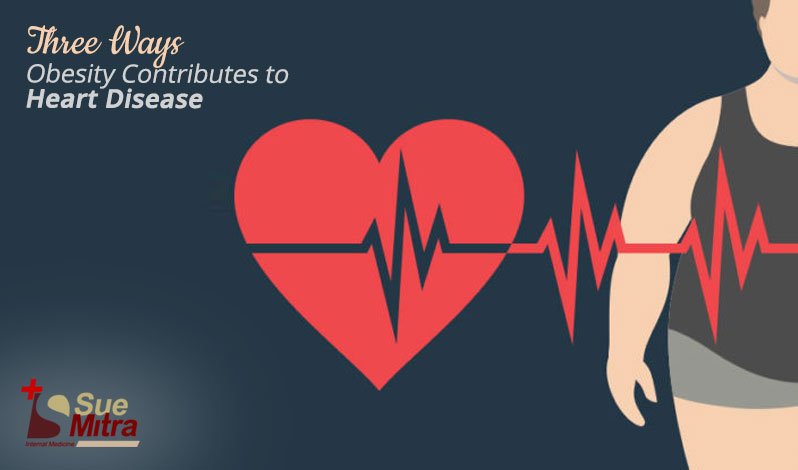
30, Aug 2022
Obesity has been progressively increasing in the United States over the last several decades, and there is no way around this fact. As a result, people's quality of life is lowered, making their lives more difficult.
You may take control of your health and prevent cardiovascular disease by doing the following three things. Obesity has a role in the development of cardiovascular disease.
Your cholesterol levels may be affected by it. Obesity raises levels of harmful cholesterol and triglycerides, as most know. If you didn't already know, a reduction in HDL (high-density lipoprotein) cholesterol might also occur. When HDL cholesterol levels are high, the body can clear itself of harmful LDL cholesterol and minimize its risk of cardiovascular disease.
It can raise your heart rate. Obese people need more blood to provide their bodies with oxygen and nutrition, which increases blood pressure. Increasing your blood pressure is also necessary to ensure proper blood circulation throughout your body. High blood pressure is also a substantial risk factor for heart attacks, which are more common in obese people. Choosing the EKG Melbourne Florida for the entire process is essential.

It raises the chance of developing diabetes. You should be worried about more than just high cholesterol, high blood pressure, and heart attacks if you have a weight issue. Obese people are also considerably more likely to get diabetes. According to the American Heart Association, at least 68 percent of individuals 65 and older with diabetes have heart disease. The American Heart Association has recognized diabetes as one of the top seven key modifiable factors in preventing heart disease. Although people with diabetes are said to have a two to four times greater risk of heart disease, this does not seem to be the case. Immediately take action if you have diabetes and have not been informed about heart problems.
Fortunately, there are steps you can do to lose weight, improve your health, and reduce your risk of cardiovascular disease.
A healthy diet and regular exercise should be the top priorities for everyone who wants to lose weight and improve their health. People with a family history of cardiovascular disease are at an increased risk of developing the condition. If you're interested in improving your health, talk to your primary care physician about building a diet and exercise regimen that is customized to your current situation.
Getting to a healthy weight may not be attainable for everyone, even if they diet and exercise. A BMI of more than 35 indicates that you should carefully consider bariatric surgery to lose weight. These conditions may be improved or treated in obese people by this drug, which has been shown to be safe and effective.
Bariatric surgery may need you to receive "cardiac clearance" before you go through with the procedure. Once you've received this approval, you can proceed with the surgery. The EKG treatment Melbourne Florida is also quite helpful here. Complications during and after surgery may be more likely if a patient has untreated cardiac conditions such as high blood pressure, high cholesterol, or other heart-related ailments. Your cardiologist will be able to aid you in monitoring your blood pressure, cholesterol level, and any other heart disorders that may pose a risk.
Dr. Sue Mitra and her staff strive to offer their patients the best care, advice and services available in the medical field with the goal to keep patient healthy & happy.

Dr. Sue Mitra is board certified in international medicine. She is seen here with a Cologuard, which is a noninvasive colon cancer screening test. (Photo by: Tim Shortt/Florida Today)